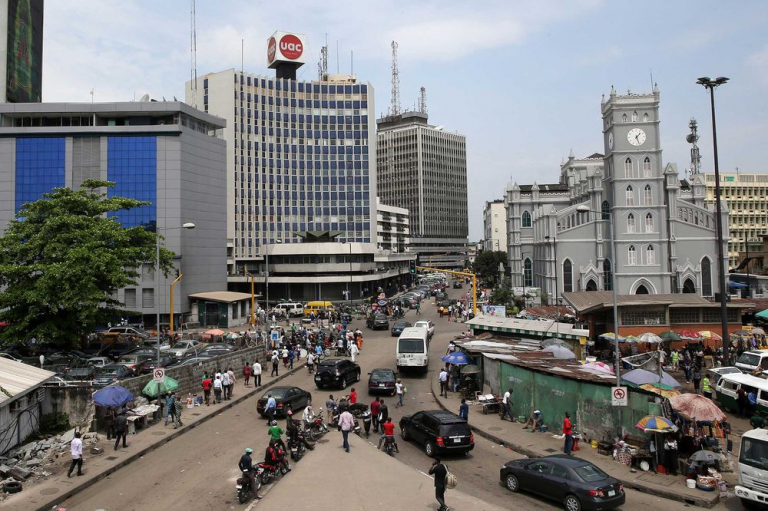
Nigeria’s private sector is beginning to show signs of sustained momentum as fresh data from the Central Bank of Nigeria (CBN) reveals a third consecutive month of expansion in business activity.
The CBN’s Purchasing Managers’ Index (PMI) climbed to 52.3 points in March 2025, up from 51.4 in February, signaling further improvement in demand, business confidence, and employment across key segments of the economy.
In a release published by the apex bank, the March PMI report underscored an economy slowly finding its rhythm after years of volatility and economic strain. The 52.3 reading—anything above 50 indicates growth—suggests that Nigeria’s private sector is beginning to adapt more steadily to the current economic climate, with businesses responding to improved customer demand and ongoing investments in new projects.
Register for Tekedia Mini-MBA edition 19 (Feb 9 – May 2, 2026).
Register for Tekedia AI in Business Masterclass.
Join Tekedia Capital Syndicate and co-invest in great global startups.
Register for Tekedia AI Lab.
“The composite PMI for March 2025, at 52.3 index points, indicates expansion in economic activities for the third consecutive month,” the CBN said in its report.
Broad-Based Growth Across Major Sectors
One of the more striking insights from the March PMI is the broad-based nature of the expansion. All three major sectors—Industry, Services, and Agriculture—posted positive growth. While the gains are moderate, they are consistent, and for policymakers and business leaders, that consistency may carry more weight than flashy quarterly spikes.
The Agriculture Sector led the growth pack with a PMI of 54.7 points, continuing a pattern of resilience that has often seen agribusiness emerge as a bulwark against broader economic malaise. The Services and Industry sectors both posted PMI readings of 51.5 points, a signal that demand for services and manufactured goods is holding up, albeit at a more tempered pace.
That growth is also reflected in sub-indices like output and new orders. The Output Index rose to 52.8 points, while the New Orders Index stood at 52.2, indicating a healthy pipeline of business activity. Employment levels also improved, with the Employment Index reaching 51.7—its third straight month of growth.
Sectoral Composition: Winners and Laggards
Among the 36 subsectors tracked, 24 reported growth in March, with Forestry emerging as the best-performing segment. This suggests increased activity in rural value chains, possibly driven by seasonal demand and investments in resource-based processing.
However, 12 subsectors saw declines. Nonmetallic Mineral Products suffered the steepest contraction, highlighting lingering weakness in parts of the industrial supply chain—particularly those dependent on construction and infrastructure projects, which have slowed due to high financing costs and FX volatility.
Price Pressures Still a Concern
Not all signs point to unclouded optimism. Businesses continue to grapple with rising costs, particularly in the Industry and Services sectors. The report notes that the Industry sector recorded the highest input price inflation, while Services led in output price inflation, hinting at a potential pass-through to consumer prices in the months ahead.
In contrast, the Agriculture sector managed to keep cost pressures relatively in check, recording the lowest increases in both input and output prices. That may offer some relief for food supply chains, though inflation remains a broader challenge across Nigeria’s economy.
What It Means for Business and Policy
For many Nigerian businesses, this uptick in PMI offers more than just a statistical reprieve. It signals that firms are adapting to the new realities—navigating through high interest rates, inflation, and foreign exchange constraints—with a level of determination that underscores Nigeria’s long-running entrepreneurial spirit.
Three straight months of job gains suggest that companies are not just reacting to improved demand but are also actively positioning themselves for growth. The uptick in inventory accumulation further hints at confidence in future sales, despite ongoing macroeconomic challenges.
Still, the optimism is guarded. The inflationary trend, especially in production costs, poses a threat to margins. For the Central Bank, which has spent much of the past year tightening monetary policy in an effort to rein in inflation and stabilize the naira, the March PMI will be a welcome sign that the medicine isn’t choking off growth entirely.
But the balancing act continues. Whether this trend extends into the second quarter will likely depend on how Nigeria manages energy supply disruptions, FX liquidity, and the global commodity price environment.



